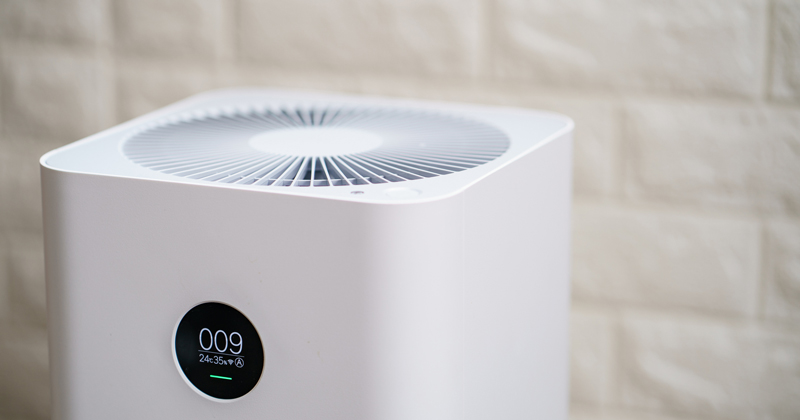The Department for Education has launched an online “marketplace” for schools to buy purifiers to help tackle Covid, recommending units which cost up to £1,170 each.
Schools Week revealed last month the DfE planned to provide 1,000 air cleaning units for alternative provision and specialist or mainstream SEND settings – but was refusing to fund them for other schools.
The government has confirmed deals with French electric goods wholesaler Rexel to offer recommended units for schools at agreed prices, with schools now able to place orders.
The products are the Dyson Pure Cool Formaldehyde TP09, which costs £424.82 per unit, and the Camfil City M, costing £1170 per unit.
Both products are said to remove more than 99.9 per cent of ultrafine particles in the air.
The DfE told school leaders by email: “In the very few cases where an area of poor ventilation has been identified and this cannot be resolved through opening windows and doors or minor repair works, it may be appropriate to consider the use of an air cleaning unit as an additional mitigation whilst further remedial work is undertaken to improve ventilation.
“However, it should be noted that they are not a substitute for ventilation and should never be used as a reason to reduce ventilation.”
Cost of air purifiers
Multiple general retailers are selling the Dyson unit for around £600 online, suggesting the DfE secured a sizeable discount.
But the government faced criticism on social media for not choosing cheaper units.
At its general retail sale price, even the cheaper Dyson purifier is the fifth most expensive in a list of 47 common models collated by consumer group Which?. At the discount price, it would still be the 13th most expensive.
The Camfil unit is not on the list, but would be more expensive than any of the 47 products Which? featured. A DfE spokesperson said air cleaners were chosen on suitability for education settings rather than homes, as many consumer units are, however.
Engineers, scientists and several departments helped shape selection criteria, the spokesperson added. They included clean air delivery rates, noise, filtration capability, technical certfication, warranty, ease of use and maintenance and evidence for manufacturers’ claims.
A £1.75 million government-funded school trial to test the feasibility and effectiveness of the filters, and ultraviolet lights, to stop the spread of Covid was announced in August.
But the project is not expected to report back until the “first half of next year”. It is also using air purifiers supplied by a different manufacturer, Philips.
Calls for DfE to foot the bill
The DfE has faced demands to provide new funding for the units for all schools, amid discontent at leaving windows open during winter.
James Bowen, director of policy for school leaders’ union NAHT, previously told Schools Week policy should not mean that “only those schools that can afford them are able to access them.”
The National Education Union also called for the government to “urgently invest in air filtration devices” today, as part of its newly published alternative, tougher “Plan B” than the government’s latest Covid measures.
Some devices can cover greater areas than others, but Labour has called in Scotland for funding for two devices in every classroom.
Schools Week analysis suggests that it would cost the DfE roughly £284.7m to fund Dyson units in every English classroom, based on official data on average class sizes and pupil numbers. Funding one per classroom would cost £142.3m.
Funding two of the more expensive Camfil City M units would cost £784m.
Schools themselves instead face a bill of around £5,930 if they want one of the cheaper Dyson units per classroom. If they opt for two of the more expensive model per classroom, it would set them back £32,666.
CO2 monitor rollout
The DfE defines poor ventilation as areas with sustained CO2 readings above 1500ppm on carbon dioxide monitors. A Schools Week investigation found some schools have identified levels up to three times higher than this reading.
A DfE spokesperson said more than 300,000 CO2 monitors had now been delivered to schools.
“For the small number of cases where poor ventilation can’t easily be solved, we are providing high quality air cleaning devices either for free or through an open marketplace at a competitive price, depending on a school’s level of need and proportion of vulnerable pupils and staff.
“This robust approach to ventilation sits alongside the wide range of protective measures already in place in schools, helping deliver the national priority of protecting face-to-face education.”
Household appliances firm Dyson is owned by the inventor Sir James Dyson, a prominent Brexit supporter and Britain’s fourth richest man, according to the Sunday Times rich list.
Camfil is a global air filtration firm headquartered in Sweden, while retailer Rexel is a publicly traded supplier already supplying CO2 monitors to schools under a Crown Commercial Service framework.















Your thoughts